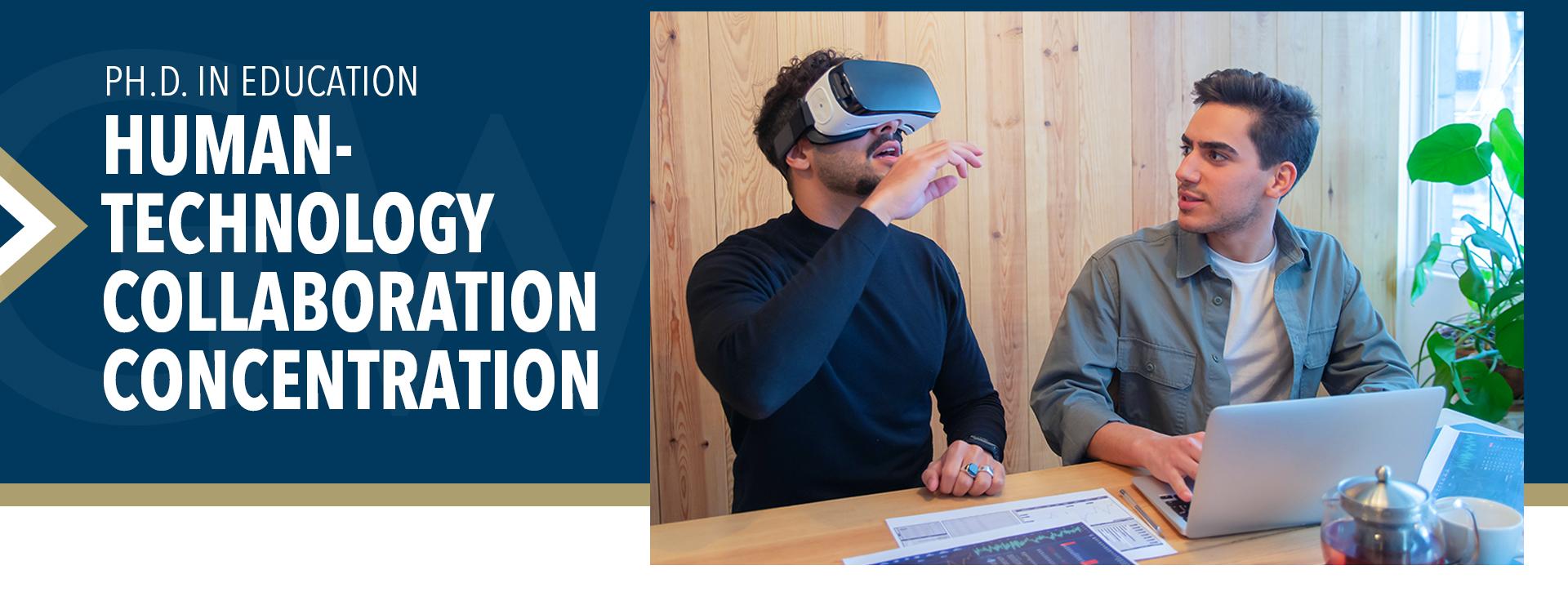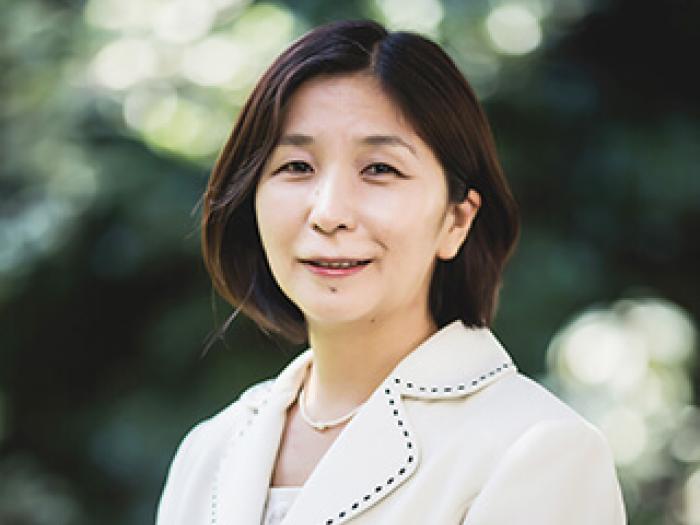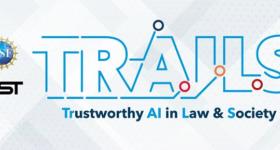A Day in the Life of a PhD Student
Hear from three education doctoral students about their day-to-day experience as a PhD student and their advice for those considering a PhD program.


In a world where we rely on personalized news alerts, where online education adapts to us, and where ChatGPT makes learning easier, it's clear that AI and Large Language Models (LLMs) are changing the game. These technologies, powered by data science, machine learning, and artificial intelligence wizardry, have incredible potential. While popular culture and real-world incidents have highlighted the potential risks of irresponsible use, scientists have also unveiled an array of boundless possibilities where these technologies can bring immense benefits.
Acknowledging that the prevalence of these technologies and computational thinking will only escalate in our classrooms, workplaces, and everyday lives, GSEHD offers an innovative PhD concentration in Human-Technology Collaboration. Our objective is to gain insights into how this collaboration between people and machines will shape our future and the wide-ranging implications it holds, both positive and negative.
Preparing the global workforce to create, train, interact, and collaborate with intelligent technologies is an immediate challenge. We must all develop new skills and effective strategies to truly harness the power of technology to enhance performance. We must learn to post the right questions, skillfully interpret data analytics, navigate the uncertainties of machine intelligence, make ethical and policy judgments that seamlessly integrate data and social values, and explore novel collaborative approaches that truly engage technologies as our valued partners in learning and work.

Thinking Outside of the Box
Drawing upon faculty and experts from education, data science, engineering, psychology, business, public health, and medical informatics, the PhD takes an interdisciplinary approach to education and research into how the collaborations of people and machines shape the future.
Hands-On Experiential Learning
Take part in our larger inclusive cross-disciplinary team as well as a more focused research project. You’ll bring your experience in education to the design, development, data collection, and analyses of a research project.
Principles of Research
Gain a deeper understanding of the responsible conduct of research with human subjects, research ethics, and how to consider the social impact of the work.
As a Carnegie R1 institution (very high research activity), the George Washington University is home to world-class faculty that are leading cutting-edge research, along with diverse labs, cross-collaborative initiatives between schools and local organizations, and unparalleled educational and employment opportunities.
GW is home to the Human-Technology Collaboration Research Lab where you can join the vanguard exploring the frontiers of this new science. Current research projects include AI Literacy & Ethics, Intelligent Tech in Education, Collaborating with Cognitive Assistants, and more.
Doctor of Philosophy (PhD) in Education, Human-Technology Collaboration Concentration
Foggy Bottom Campus
Fall
The mission of the PhD concentration in Human-Technology Collaboration is to explore and harness the transformative power of intelligent technologies in a world where they have become an integral part of our daily lives. Through rigorous research and interdisciplinary collaboration, we aim to gain profound insights into the intricate relationship between humans and machines, understanding how it shapes our future and the multifaceted implications it carries. Our program is committed to equipping the global workforce with the skills and strategies necessary to navigate this evolving landscape. We strive to foster the ability to ask critical questions, interpret complex data analytics, leverage data for enhanced performance, navigate the uncertainties of machine intelligence, make ethical and policy judgments that integrate data and social values, and forge new collaborative approaches that fully engage intelligent technologies as valued partners in learning and work. By embracing the challenges and opportunities presented by human-technology collaboration, we aim to create a future where innovation and progress harmoniously coexist. Through our research and education, we seek to shape a society that harnesses the remarkable potential of intelligent technologies, contributing to a world where individuals and communities thrive in an era of transformative possibilities.
The following requirements must be fulfilled: 60 credits, including 36 credits in core courses, and 24 credits in the concentration, successful completion of a research project, successful completion of the comprehensive examination; oral defense of both the dissertation proposal and the dissertation.
| Code | Title |
|---|---|
| Required | |
| Core Courses: | |
| SEHD 8200 | Foundations of Education I |
| SEHD 8201 | Foundations of Education II |
| SEHD 8210 | Doctor of Philosophy Seminar in Education Research I |
| SEHD 8211 | Doctor of Philosophy Seminar in Education Research II |
| Research Methods: | |
| 12 credits of doctoral-level research methods coursework, selected in consultation with advisor. At least one course must be in quantitative research methods and one in qualitative research methods. | |
| Dissertation: | |
| SEHD 8999 | Dissertation Research (taken for at least 12 credits) |
| Additional Requirements: | |
| Successful completion of a research project. | |
| Successful completion of the comprehensive examination. | |
| Oral defense of both the dissertation proposal and the dissertation. | |
| Code | Title |
|---|---|
| Human-Technology Collaboration Concentration Requirements: | |
| 24 credits in graduate-level courses determined in consultation with the advisor. Course selections are determined by the focus of the concentration and the specific interests of the student. | |
The CRT is dedicated to the principles and practice of open science for accelerating scientific progress. The concentration supports the development of research and analysis that is widely available for peer feedback and potential replication or reproduction. The sharing of collaborative and student research is encouraged at all phases from conceptualization and design to publication and dissemination. Replication studies, preregistration of research proposals, open sharing of data and code, and the preprinting of publications are among the tools used within the concentration to open our science.
Preparing for data intensive environments powered by intelligent technologies requires research-based approaches to answering these and other questions:
GSEHD’s Office of Admissions invites you to apply for a spot in our program. Please review the following admission and financial information.
Ready to take the next step in your career? Review our step-by-step guide to applying to GSEHD >
To learn more about the program, admission process, and upcoming events, please connect with the GSEHD Admissions Team at docinfo![]() gwu [dot] edu (docinfo[at]gwu[dot]edu) or 202-994-9283.
gwu [dot] edu (docinfo[at]gwu[dot]edu) or 202-994-9283.
| Apply Now | Schedule Meeting with Admissions Coach |
To be considered for admission, applicants must submit the online application form as well as the following required supporting documents. There is no application fee.
Please note: The GRE is not required.
*Additional application requirements may exist for international applicants.
Applications are being accepted for Fall 2026. We encourage you to apply as early as possible.
| Application Timeline | Fall |
|---|---|
| Priority Deadline | Nov 1 |
| Round 1 Deadline | Dec 1 |
| Round 2 Deadline | Jan 15 |
For more information or to inquire about the next admissions cycle, contact the GSEHD Admissions Team at docinfo![]() gwu [dot] edu (docinfo[at]gwu[dot]edu) or 202-994-9283.
gwu [dot] edu (docinfo[at]gwu[dot]edu) or 202-994-9283.
We know embarking upon graduate school is a big decision - due in part to the costs of attending. At GW, we understand the time and thought behind making graduate school work for you. Please take a moment to learn more about the options and opportunities available to help fund your graduate education.
Graduate tuition is charged per credit hour, unless otherwise noted. Rates vary by program and location.
The tuition rate for the PhD in Education - Human and Organizational Learning Concentration program is $1,960 per credit hour.
This program requires 60 credits.
Please note: Additional fees may apply for international students, late fees, etc. Current tuition rates may be updated during the year.
*Summer 2025, Fall 2025 and Spring 2026
Scholarships are available to eligible admitted students. Review eligibility requirements and learn more about funding your education >
Students graduating from the Human-Technology Collaboration program can expect a promising career outlook in various sectors. With their comprehensive understanding of the symbiotic relationship between humans and intelligent technologies, graduates will be well-equipped to pursue opportunities in academia, research institutions, think tanks, technology companies, government agencies, and consulting firms, where their expertise in navigating the ethical, policy, and collaborative aspects of human-technology interaction will be highly valued. Additionally, their proficiency in data analytics, machine learning, and interdisciplinary problem-solving will open doors to leadership roles and innovative positions at the forefront of technological advancements.



Associate Dean, Office of Student Life; Professor, Educational Technology Leadership



Sarah Shomstein
Professor, Cognitive Neuroscience
%20shom![]() gwu [dot] edu (shom[at]gwu[dot]edu )| 202.994.5957
gwu [dot] edu (shom[at]gwu[dot]edu )| 202.994.5957
Helmchen, Lorens
Associate Professor, Health Policy and Management
helmchen![]() gwu [dot] edu (helmchen[at]gwu[dot]edu )| 202.994.3816
gwu [dot] edu (helmchen[at]gwu[dot]edu )| 202.994.3816
Hill, Sharon
Associate Professor of Management
nshill![]() gwu [dot] edu (nshill[at]gwu[dot]edu )| 202.994.1314
gwu [dot] edu (nshill[at]gwu[dot]edu )| 202.994.1314
Barba, Lorena
Associate Professor, Mechanical and Aerospace Engineering
labarba![]() gwu [dot] edu (labarba[at]gwu[dot]edu )| 202.994.3715
gwu [dot] edu (labarba[at]gwu[dot]edu )| 202.994.3715
JP Helveston
Assistant Professor, Engineering Management and Systems Engineering
JPH![]() gwu [dot] edu (JPH[at]gwu[dot]edu) | 202.994.7173
gwu [dot] edu (JPH[at]gwu[dot]edu) | 202.994.7173
Morizono, Hiroki
Associate Research Professor, Genomics and Precision Medicine
202.476.6029

A Day in the Life of a PhD Student
Hear from three education doctoral students about their day-to-day experience as a PhD student and their advice for those considering a PhD program.

Doc Students Collaborate on AI Mentor Pilot Project
GSEHD students collaborated with GW faculty to integrate GenerativeAI tools into their courses to study how course-specific AI can be used across disciplines.

Dr. Watkins Receives Grant for Project: Operationalizing Trustworthy AI: LLM Development in Academia
Dr. Ryan Watkins received NSF funding through the TRAILS initiative for his research project, Operationalizing Trustworthy AI: LLM Development in Academia.

Learn how you, as an educational leader, can prepare to incorporate AI in the classroom, and also understand challenges and policies needed around it.

GSEHD Alumnus Publishes New Book: Microsoft Power Platform For Dummies
Alumnus and adjunct professor Dr. Jack Hyman (master's, Educational Technology Leadership) recently published the book Microsoft Power Platform For Dummies.
